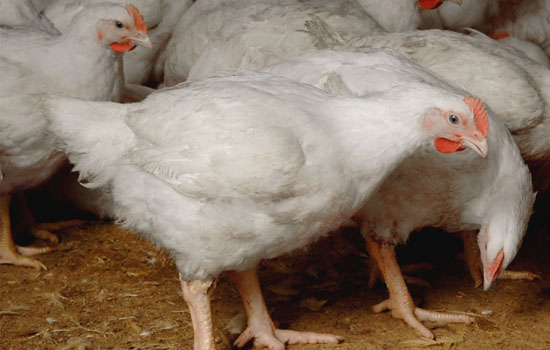How to eliminate foreign gases in the chicken house?
- font size decrease font size increase font size
In chicken house where chicken battery cages are used, the breeding density of chickens is higher. Including manure, feed and corrosion of chicken cage equipment, a lot of harmful gases are generated. Some odors with high content can be poisoned by chickens and poultry. To eliminate odors in chicken coops, the drinking water and feed of chickens must be picked up.
According to the physiological characteristics of animals, the feed processing technology such as pellets and puffing are adopted. Not only can effectively improve the utilization of nutrient elements in the feed, but also reduce the possibility of odor from the root cause. Phenol and benzene are produced in the process of animal digestion of feed, and the part that is not digested and absorbed is degraded by microorganisms in vitro, and ammonia gas is produced. The more feces produced, the higher the concentration of ammonia contained in the air in the house.
Experiments have shown that if the digestibility of dietary dry matter is increased from 85% to 90%, the dry matter excreted in feces can be reduced by 2% and the amount of fecal excretion can be reduced by 20%. The foul smell in the feces is produced by protein corruption. If the digestibility of dietary protein is increased or the heat supply of protein is reduced, the production of odor will be greatly reduced.

In terms of feed additives, the work is mainly carried out by adding enzyme preparations, acidulants, probiotics, acidulants, zeolites, etc. Fermentable carbohydrates or microbial flora can also be added to livestock and poultry diets to reduce ammonia volatilization and odor production.
At present, more research focuses on the development of plant-based additives, and more and more plant-based additives are used to deodorize breeding houses. There are even Chinese herbal deodorants made of traditional Chinese medicines such as strengthening the stomach and digesting food, sterilizing and antiseptic, to achieve the purpose of reducing the odor of chicken excrement.
In short, all factors that can increase feed digestibility and improve feed efficiency can reduce the total excretion of feces.
The hygiene of the chicken house is directly related to the health and production performance of the chicken flock. Farmers should attach great importance to them, and adopt comprehensive prevention and control measures from the aspects of breeding management, architectural design of poultry houses, rational arrangement of poultry farming chicken cages, feed, and disease prevention and control.

